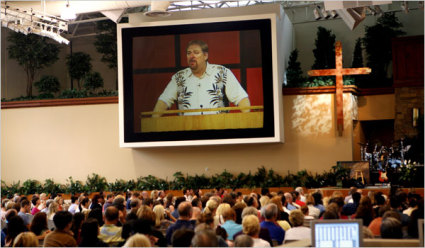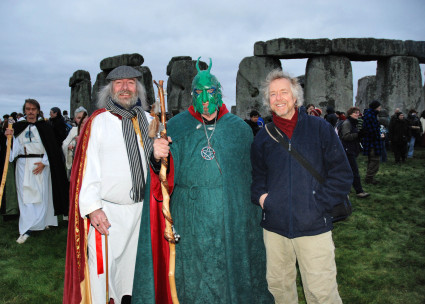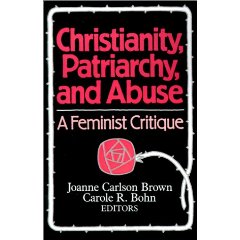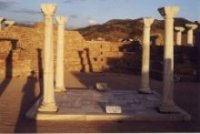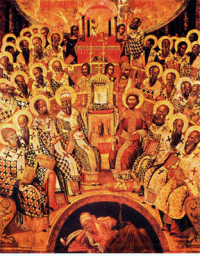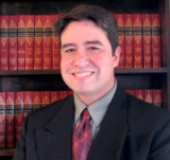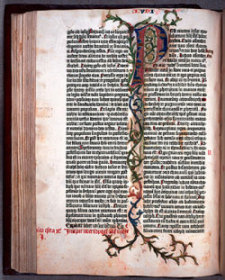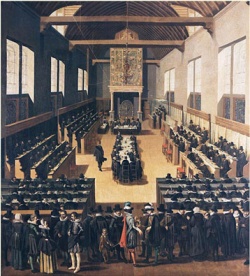
Article 12: Regeneration a Supernatural Work
And this is the regeneration, the new creation, the raising from the dead, and the making alive so clearly proclaimed in the Scriptures, which God works in us without our help. But this certainly does not happen only by outward teaching, by moral persuasion, or by such a way of working that, after God has done his work, it remains in man's power whether or not to be reborn or converted. Rather, it is an entirely supernatural work, one that is at the same time most powerful and most pleasing, a marvelous, hidden, and inexpressible work, which is not lesser than or inferior in power to that of creation or of raising the dead, as Scripture (inspired by the author of this work) teaches. As a result, all those in whose hearts God works in this marvelous way are certainly, unfailingly, and effectively reborn and do actually believe. And then the will, now renewed, is not only activated and motivated by God but in being activated by God is also itself active. For this reason, man himself, by that grace which he has received, is also rightly said to believe and to repent.
_______________________________________
Having established that conversion (defined as the exercise of faith and repentance) is closely connected to effectual calling and is the direct result of the Holy Spirit working upon a person in and through the Word of God, the Canons now go on to make the point that regeneration, likewise, is not the result of an act of human will. Rather, regeneration is the direct result of the supernatural action of God upon the heart of the sinner before the sinner comes to faith. Indeed, it is regeneration which enables the sinner to come to faith! Regeneration is caused by the Holy Spirit and precedes faith. To use a biblical metaphor, a bad tree must become a good tree in order to exercise the good fruit of faith and repentance.
It might be helpful to recall the important distinctions made by Reformed theologians when considering effectual calling, conversion, and regeneration. All of which are closely related and are connected to the prescribed means by which God calls his elect to faith—the proclamation of gospel. Effectual calling is that act of God, when, through the preaching of the gospel, God’s elect are summoned (called) to faith in Christ. Effectual calling is, therefore, an objective act of God occurring through the proclamation of the message of reconciliation—the gospel. Conversion, though directly connected to effectual calling and regeneration, strictly speaking, is a conscious act when the sinner who has been effectually called, then, in turn, exercises faith in Jesus Christ and turns from his or her sin (repentance). All of God’s elect are effectually called and converted.
Regeneration, on the other hand, is subconscious. A person may not be aware that regeneration has taken place. It occurs when God supernaturally acts upon the sinner, implanting in them the principle of new life which now becomes the governing disposition of the soul. (See, for example, Berkhof, Systematic Theology, 469).
Logically speaking, both effectual calling and regeneration must precede conversion (the exercise of faith and repentance). However, the sinner who comes to faith in Christ many not experience these things in such a precise manner. To put it another way, because elect sinners have been effectually called through the preaching of the gospel, the sinner suddenly becomes conscious of his or her sins, and their need of the merits of Christ. Yet the sinner may not be aware that regeneration has already occurred, even though the sinner could never exercise faith in Christ, if they had not been made alive when formerly dead in sin.
The Scriptures are replete with references to regeneration being an act of God upon the sinner while the sinner is passive. There are no biblical texts which teach that regeneration is the result of an act of the fallen human will. In Titus 3:5-7, for example, Paul writes “he saved us, not because of works done by us in righteousness, but according to his own mercy, by the washing of regeneration and renewal of the Holy Spirit, whom he poured out on us richly through Jesus Christ our Savior, so that being justified by his grace we might become heirs according to the hope of eternal life.” Paul is very clear about who saves whom. God “saved us by . . .” Paul does not in any way say, or imply, that God merely provides what we need so that we can now act and save ourselves.
We have already seen that dead people cannot effect their own resurrection. In Ephesians 2:5, Paul contends that “even when we were dead in our trespasses, made us alive together with Christ.” In other words, God acted upon us when we were unwilling and unable to act, because we are dead in sin until God makes us alive with Christ. From passages such as these, it is very clear that regeneration precedes both conversion and the exercise of faith and repentance.
Paul is not the only one who addresses this subject. In the opening chapter of his first epistle, the apostle Peter declares that “since you have been born again, not of perishable seed but of imperishable, through the living and abiding word of God (1 Peter 1:23).” From this text it is clear that God acts upon the sinner in and through the preached word. In fact, we are "born again" through the proclamation of the word of God (the means through which the Holy Spirit works), not through an act of the fallen human will.
John teaches the same thing. In a text that we have considered previously, John 1:13, John informs us that we are born of God (John is obviously referring to the “new birth” here), not because of an act of the human will, but because we are “born of God.” This is a point that John will make yet again in John 3, when Jesus and Nicodemus discuss what it means to “be born again.”
By now it should be clear for all to see that regeneration is not the result of an act of the sinful human will in exercising faith in Jesus Christ for the forgiveness of sin, Rather these this is the result from God’s prior act of regeneration.
When we considered article eleven (the prior article) and addressed the subject of the Spirit’s work in conversion, we had to occasion to mention John 3:1 ff. At this point, it is important to discuss a contemporary problem in light of that passage, i.e, "how would we as Reformed Christians respond to the popular American Evangelical and fundamentalist stress upon being “born again”? According to most statistics, nearly one-half of all Americans claim to be “born again,” or to have had a “born again” experience of some sort. We have every right to regard as specious the claim that one-half of America’s nearly 300 million citizens are believing Christians!
Part of the problem here is that evangelicals often identify themselves as “born again” Christians, using terminology not used in this manner by Reformed Christians. What then, does it mean to be “born again” and how does this relate to our confessions and the Scriptures?
As the authors of the Canons indicate, Reformed Christians have not placed the notion of being “born again” at the center of the Christian faith in the way in which many of our evangelical contemporaries have done. The reason for this is not that Reformed Christians reject the idea of being “born again.” Rather, the Reformed have equated John’s teaching on being “born again,” with the larger biblical category of “regeneration.” This moves the discussion away from the so-called “born again” experience, into the biblical teaching about effectual calling and conversion.
Being “born again” is (biblically speaking), a synonym for being “regenerate,” or being “made alive,” when previously, we had been dead in sins and trespasses (Cf. Ephesians 2:5). Therefore, it is an essential aspect of the Christian life as the Canons make clear. Indeed, in one sense the Christian life begins when we are “born again.”
One important reason why historic Protestants, including the Reformed, have not stressed being “born again,” is because regeneration is a supernatural act of God upon the sinner, which occurs subconsciously, and as such, will manifest itself in faith and repentance (elect infants and small children will come to faith after some interval of time, of course). It is something which may not even be “experienced” by the sinner.
To put it another way, the sinner who is regenerate and trusts in Jesus Christ many not have “experienced” anything—they simply know that they are born again and that they believe that Jesus Christ is their savior and only hope of heaven. This is the case for many, who may have grown up in Christian households, and who can state with assurance that they are “born again,” but cannot describe a time or place when such an “experience” occurred.
On the other hand, there are many, who having led a life of notorious sin and rebellion against God, do have a dramatic conversion experience, and can state with great clarity and precision the exact date and hour of their “born again” experience. Since regeneration is the subconscious act of God the Holy Spirit, a sinner may indeed be regenerate and not have any experience of being “born again.” They simply believe the gospel!
Another important and related reason that Reformed Christians speak of the new birth a bit differently from evangelicals, is that the New Testament stresses that the gospel itself is something that God has done for us in Christ, in history, outside of ourselves, and that the gospel alone (the message that Christ died and rose again for sinners – 1 Corinthians 15:1-8) is the power of God unto salvation. It is through the preaching the gospel that God gives the new birth, since the new birth is related to effectual calling and necessarily precedes conversion.
The great irony is that new birth does not come through preaching the new birth! There is no command anywhere in the Bible—John 3 included—which commands sinners to become “born again!” This is a very important point to grasp, and I am not sure that many evangelicals do.
It is important to notice that Jesus’ words in John 3:3 (“unless one is born again he cannot see the kingdom of God”) are not to be taken as a command in which we are to do what it takes to “be born again.” This is how many understand these words today. Jesus is not telling us to do anything! This is not an imperative, but an indicative. It is a statement of fact. Jesus is telling us about our condition. Something supernatural must happen to us if we are to enter the kingdom. “Unless one is born again he cannot see the kingdom of God.” Note--Jesus is not telling us what to do: “Born yourself again!”
As we know from other passages in Scripture that we have already treated, the Scripture says we are “dead in transgressions and sin,” and that “God must make us alive with Christ” if we are to be saved (Ephesians 2:1-5). Jesus himself tells us that “truly, truly, I say to you, whoever hears my word and believes him who sent me has eternal life. He does not come into judgment, but has passed from death to life” (John 5:24). Jesus also says that no one can even come to Him unless the Father not only draw them (6:44), but also enables them to come to Him (6:65). In fact, in John 3:3-8, notice that Jesus makes it very clear that “that which is born of the flesh is flesh, and that which is born of the Spirit is spirit.” The Spirit is like the wind, it blows wherever it wills. Regeneration is clearly God’s act, not man’s.
Hence, the popular teaching that “we can be born again and escape the judgement of God by simply believing in him,” (Chuck Smith, New Testament Study Guide, Costa Mesa CA: The Word for Today, 1982, 39) confuses the cause (regeneration) with the effect (faith), putting things exactly backwards! Dead men cannot resurrect themselves!
This is why it is vital to notice that throughout the Scriptural data, especially in John 3, God the Holy Spirit is the agent of regeneration, not a human “decision” to accept Jesus as our "personalLordandSavior" as the semi-Pelagians, or the Arminians would have us believe. As most commentators point out, the word translated here as “born again,” (anothen) is a word that can either mean “from above” or a “second time.” Nicodemus very likely understood it to have the latter meaning since he very pointedly asks Jesus, “How can a man be born when he is old? Can he enter a second time into his mother's womb and be born?”
It is also important to notice that Jesus connects being “born again” to being born of “water and the Spirit.” No matter what Jesus means by this (and the Christian family is greatly divided), one thing that is certainly precluded is the idea that being “born again,” is something which results from an act on our part, i.e., we believe and as a result, we are born again!
If Jesus is clear about anything here, it is that God is the active party while we remain passive. In the new birth, God is one who finds men and women dead in sins and transgressions and unable to resurrect themselves. This is why the Reformed connect regeneration to the proclamation of the word of God. If we wish to see God give the gift of new birth, we should preach Christ crucified and God will give his people the gift of the new birth (regeneration) and effectually calls them to faith in his Son (conversion).
This is why the Canons state, “but this certainly does not happen only by outward teaching, by moral persuasion, or by such a way of working that, after God has done his work, it remains in man's power whether or not to be reborn or converted. Rather, it is an entirely supernatural work, one that is at the same time most powerful and most pleasing, a marvelous, hidden, and inexpressible work, which is not lesser than or inferior in power to that of creation or of raising the dead, as Scripture (inspired by the author of this work) teaches.” Indeed, this is what Paul means when he says “when we were dead in sins and trespasses God made us alive with Christ.” Regeneration is a distinctly supernatural work!
Says Jesus as recorded in John 5:24-25: “Truly, truly, I say to you, whoever hears my word and believes him who sent me has eternal life. He does not come into judgment, but has passed from death to life. Truly, truly, I say to you, an hour is coming, and is now here, when the dead will hear the voice of the Son of God, and those who hear will live.” Jesus cannot be any clearer: Those who have (who presently possess) eternal life (are “born again”) will, at some point, believe the gospel when it is preached to them.
It is also important to point out that if this is truly the case, it is not necessary to know when you were born again (as if we could actually tell the day and the hour that the Spirit made us alive), but is it necessary to know that you are born again. If you have placed your trust in Christ, you have done so because God has made you alive with Christ, even when you were dead in sin (Ephesians 2).
Thus any view of being “born again,” which defines it either as a work of man, or based upon a work of man, is seriously deficient. This is why the authors of the Canons state— “And this is the regeneration, the new creation, the raising from the dead, and the making alive so clearly proclaimed in the Scriptures, which God works in us without our help.”
Therefore, when we speak of regeneration, or being “born again,” it is vital to note that men and women are passive, as God sovereignly acts upon the sinner while the sinner is still described as dead in sins and trespasses. There is no place for human co-operation when we speak of regeneration as the Arminians argue. To hear the Arminians tell it, it were as though Lazarus was inside the tomb, unwrapping his bandages and opening the latch on the inside of the Tomb so that Jesus could call him forth. It was our Lord’s effectual call that brought Lazarus back to life, not an act of Lazarus’ will!
A major second point made by the authors of the Canons is that it is a mistake to think of regeneration as something that happens at a single point of time. Rather, we should think of regeneration as something that begins at a point of time, but continues on eternally. This is why the authors go on to say, “as a result, all those in whose hearts God works in this marvelous way are certainly, unfailingly, and effectively reborn and do actually believe. And then the will, now renewed, is not only activated and motivated by God but in being activated by God is also itself active. For this reason, man himself, by that grace which he has received, is also rightly said to believe and to repent.”
When we are regenerate, or “born again,” we not only enter into eternal life, but the continuance of that life itself is the ongoing manifestation of regeneration. We continue on in faith and we repent of our sins when the law is preached! New life begins at regeneration and continues on unto our glorification.
 Tuesday, March 31, 2009 at 01:39PM
Tuesday, March 31, 2009 at 01:39PM 

